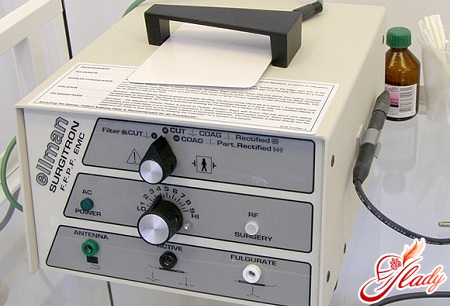
The modern rhythm of life often leaves no tracea person has the opportunity to think about his health: everyday tasks and responsibilities come first in his eyes, and, trying to solve these problems that seem to him to be of primary importance, a person puts off thoughts about health for a long time. For example, because of an urgent planning meeting, an office worker can grab a hamburger on the go, containing the daily norm of calories, or skip lunch altogether, and a young mother, not having time to cook dinner and pick up her child from kindergarten, once again postpones a planned run in the park, which she has been promising herself for several weeks.
Metabolic syndrome: factors of formation
Each of us can easily remember manysimilar examples when urgent matters forced him to abandon actions aimed at maintaining or improving his health. This is all the easier to do if you consider that giving up unhealthy foods or doing sports will not bring immediate benefits immediately after a person has replaced a portion of fried potatoes with a vegetable salad for the first time, and an evening spent in a smoky bar with a visit to the gym. Therefore, most of us think that another refusal to take actions aimed at maintaining a healthy lifestyle cannot in any way become decisive in relation to the state of our health. But in reality, such behavior can cause a number of serious diseases, including metabolic syndrome (MS). Any specialist will agree that activities aimed at maintaining and improving one's health have a pronounced cumulative effect: as healthy eating and sports become a habit, their impact on a person's well-being and appearance becomes more and more noticeable. In addition, we must not lose sight of the fact that a kind of habit is gradually formed in relation to such actions, which over time makes a person make a choice in favor of a healthy lifestyle automatically. Therefore, he no longer faces a daily painful choice between a hamburger and a baked chicken breast, but makes this choice without thinking. However, the absence of such a habit has a similar effect. Just like activities aimed at improving and maintaining health and well-being, the habit of poor nutrition and a passive lifestyle has a cumulative effect. In other words, the negative consequences of such a lifestyle accumulate, becoming more and more noticeable over time. Sooner or later, the effect of their influence becomes obvious not only to others, but also to the person himself, who all this time tried to close his eyes to some deterioration in his health, rapid fatigue after physical exertion, susceptibility to infectious diseases and other problems. In such a situation, it is extremely important to notice negative manifestations in time, without waiting for the moment when their elimination becomes extremely difficult. The thing is that some symptoms are dangerous not so much in themselves, but because of the consequences they can lead to. However, before these consequences actually occur, it is not too late to start fighting for your health.
Possible negative effects of MS in the absence of treatment
One example of such a situation is thiscalled metabolic syndrome, which has become widespread in the world in recent years. In particular, its prevalence is typical for developed countries, the lifestyle of the population of which is often characterized by excessive calorie consumption and insufficient physical activity. Together, these and some other negative factors can lead to the development of such an ailment as metabolic syndrome. The syndrome itself is not a disease, but a complex of various disorders of the normal functioning of the human body, which together can lead to quite serious problems. Among the most common negative consequences of metabolic syndrome are cardiovascular diseases, including some of the most dangerous - myocardial infarction, diabetes and stroke. In addition, depending on the individual characteristics of a person, metabolic syndrome can provoke the occurrence of fatty liver hepatosis, polycystic ovary syndrome (PCOS), dysfunction of the genitourinary system in men, gout and other dangerous diseases. Thus, the possible negative consequences are quite dangerous, and therefore it will be useful to understand what metabolic syndrome is and how to deal with it.
The main symptoms of metabolic syndrome
As mentioned, metabolic syndromeis a combination of several types of disorders that occur during the functioning of the human body systems. According to experts, they are based on a violation of the normal mechanism of glucose absorption, which in professional literature is called insulin resistance. In practice, this problem manifests itself in the fact that the amount of insulin in a person's blood is inconsistent with the amount of glucose that is present in it at the moment. As a result, insulin, which is one of the most important human hormones involved in almost all aspects of metabolism, disrupts the normal order of absorption of proteins, fats and other substances that have a significant impact on the functioning of the body. One of the main consequences of such a violation of normal metabolism is the occurrence of obesity in a person suffering from insulin resistance. However, it is necessary to assess the fact of the presence of this problem from an objective point of view. In the modern world, this concept has acquired an interpretation that is quite far from the medical interpretation of this term: girls with a normal height and weight ratio tend to state that they are obese and try in every possible way to get rid of it. Of course, such a situation has nothing to do with real obesity, which is a consequence of a violation of the normal mechanism of glucose absorption. Within the framework of established medical practice, there are quite clear and objective criteria for identifying obesity, which can be regarded as a component of metabolic syndrome. In particular, specialists have developed a special indicator called the body mass index, which is used to determine the boundaries of the norm and excess weight for each person individually, taking into account their height. At the same time, this index is quite simple to calculate, so everyone can independently determine the risk of developing metabolic syndrome.
Metabolic syndrome: diagnosis of the risk of
The body mass index is determined by the followingformula: BMI = weight / square of height. Thus, in order to calculate your own body mass index, you need to know your exact weight and height. For calculations using this formula, weight should be used in kilograms, and height - in meters. For example, calculating the body mass index for a woman weighing 70 kilograms, whose height is 160 centimeters, will look like this: BMI = 70 / (1.6 * 1.6) = 27.34. To understand whether the result obtained is dangerous in terms of the possibility of metabolic syndrome, you need to know how to interpret the results of the calculations. Currently, experts identify the following boundaries for interpreting the body mass index:
- BMI value less than 18.5 - insufficientbody weight. In terms of the possibility of developing metabolic syndrome, a group of people with such a body mass index is characterized by minimal risk, but it should be borne in mind that an insufficient BMI value can be a factor in the development of other diseases. Therefore, experts recommend consulting a doctor about the possibility of achieving normal body weight;
- BMI value in the range from 18.5 to 24.9 -normal body weight. The specified body mass index limits are optimal from the point of view of a person's resistance to various diseases, including metabolic syndrome;
- BMI value in the range from 25.0 to 29.9 -excess body weight. In this case, specialists usually state the presence of an increased risk of developing a number of diseases, including metabolic syndrome (MS);
- BMI value in the range from 30.0 to 34.9 -obesity of the first degree. Obesity is a serious risk factor for the development of the syndrome in question, which increases with further growth of body weight;
- BMI value in the range from 35.0 to 39.9 - stage II obesity, which poses a greater threat to health in terms of the development of MS compared to lower BMI values;
- BMI value over 40.0 - stage III obesity, maximum risk of developing MS.
Thus, the statement of body mass index,exceeding 25.0, is a possible risk factor for metabolic syndrome. In addition, it should be borne in mind that even with the same high body mass index, the tendency to develop MS will be different in people suffering from different types of obesity. Thus, the greatest risk of developing MS is in those people who are characterized by the so-called abdominal type of obesity, when fat deposits are concentrated around the waist. The opinions of experts regarding the absolute values of the waist volume that represent a danger differ. However, a significant part of them recommends starting to take measures if a man's waist volume exceeds 94 centimeters, a woman's - 80 centimeters. In turn, the situation when fat deposits are concentrated in the pelvic area is less dangerous in terms of developing MS.
Metabolic Syndrome: Additional Symptoms
In addition, experts highlight a number ofadditional symptoms, the presence of which can be used to diagnose this disease. Thus, the presence of several of them can clearly indicate the formation of metabolic syndrome. In particular, these include:
- increased blood pressure, whichprofessional language is called arterial hypertension. Threshold of dangerous values experts call pressure 135/80 and recommend paying more attention to it in case of exceeding these values;
- violation of the characteristics of human lipid metabolism. These violations can have a different expression. Thus, dangerous symptoms include elevated triglyceride levels to over 1.7 mmol / l, an increase in low-density lipoprotein levels of up to 3.0 mmol / L or more, a decrease in high-density lipoprotein levels of up to 1.0 mmol / L for men and 1 , 2 mmol / L for women;
- high blood glucose. Experts recommend to pay attention to it if the index measured on an empty stomach exceeds 5.6 mmol / l;
- a violation of glucose uptake, which is characterized by an elevated (7,8-11,1 mmol / L) content of it in the blood plasma two hours after the adoption.
Experts note that the presence of a personat least three of the listed symptoms, one of which is excess body weight, can serve as a criterion for establishing metabolic syndrome. However, if the corresponding symptoms are detected, you should consult a doctor who, if necessary, will prescribe additional tests and then make a final diagnosis.
Metabolic syndrome: independent treatment
If the doctor does make such a diagnosis, do notthere is no need to despair. Firstly, a significant part of the work on preventing and eliminating the negative consequences of such a diagnosis can be done independently. First of all, the treatment of metabolic syndrome involves changing the usual diet, since it is most often the cause of obesity and other unpleasant symptoms. At the same time, the recommendations for changing the diet given by specialists are quite simple and are generally recommended to everyone who strives to lead a healthy lifestyle. In particular, we are talking about eating a sufficient amount of vegetables and fruits, excluding drinks and foods with a high sugar content, significantly reducing fat consumption while simultaneously replacing most animal fats with vegetable fats. The second area of work to eliminate the consequences of metabolic syndrome is changing the lifestyle itself. In particular, we are talking about making it as active as possible. This can be achieved not only by including regular exercise in a sports center or pool in your daily life, but also by increasing your daily activity. For example, experts claim that with the help of fairly simple actions, you can easily increase your daily energy consumption by 100-500 kilocalories, which after some time will definitely lead to weight loss. For example, to do this, you can park your car not in the immediate vicinity of the office, but a couple of blocks away, go up to your home to the fifth floor not by elevator, but on foot, do not send a courier to deliver the mail to a neighboring business center, but do it yourself. At the same time, trying to treat this complex of disorders, you should keep in mind that if nutritional recommendations can be introduced into your daily life right from tomorrow, then with physical activity you should adhere to the principle of gradualness. This is especially true for activities that involve significant physical activity, such as doing exercises in the gym, cycling, jumping rope and similar activities. However, all of the listed measures are unlikely to bring results immediately: it will take a fairly significant amount of time for a change in diet and a gradual increase in physical activity to lead to weight loss, improved metabolism and the disappearance of the symptoms of metabolic syndrome. Circumstances may develop in such a way that a person needs to achieve a faster and more effective result.
Medication for metabolic syndrome
If the situation requires radical andurgent intervention, experts recommend resorting to medical treatment of the symptoms of metabolic syndrome. It is extremely important to remember that drug treatment should be carried out only under the constant supervision of a doctor, since only he is able to track the dynamics of the effect of certain drugs and, if necessary, adjust the therapy in time. Otherwise, its results may not only fail to improve, but also worsen the situation. In general, drug treatment for MS is usually aimed at eliminating its individual symptoms: obesity, impaired glucose absorption, lipid metabolism disorders, high blood pressure, and others. Depending on what symptoms a particular patient has, the doctor will be able to select certain drugs aimed at eliminating his problems. In addition, when contacting a doctor, you should remember that the effectiveness and duration of treatment will strongly depend on how long the patient has been suffering from the symptoms of metabolic syndrome. So, if they appeared relatively recently, it will be easier for a specialist to cope with them by selecting the appropriate drug. If a person has had them for many years, one should be prepared for the fact that this treatment will be quite long. However, given the seriousness of the negative consequences that metabolic syndrome has, it is necessary to fight it. Otherwise, in a few years, a person whose main problems were excess weight and high blood pressure may face the development of diabetes, serious cardiovascular diseases and other problems, which will be much more difficult and expensive to cure. Therefore, experts recommend consulting a doctor for diagnosis and treatment at the first suspicion of the formation of metabolic syndrome.









